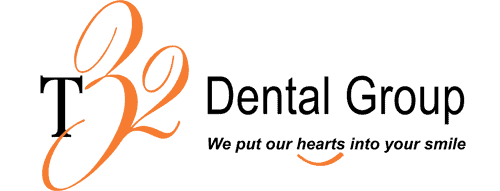Your first visit
Consultations with T32 Dental Centre are made by appointment only. Your first visit to T32 Dental Centre will be for an initial evaluation. This appointment is used to secure your dental records, perform clinical examinations, complete any required radiographs and diagnostic casts, and to discuss your treatment needs and wishes.
In order for our dentists and staff to attend to every patient promptly, all patients are requested to arrive on time for their appointments. By doing this you would help us to avoid any delay or interruption to our dentists’ schedules. Should you need to reschedule your appointment, kindly notify us 48 hours’ before.
International Patients
T32 Dental Centre is committed to providing all our patients with quality services. International patients can be assured that we will:
- Keep our patients well-informed of all the treatment options available
- Arrange for the earliest time possible for consultation, surgery and follow-ups
- Arrange for hotel accommodation and other relevant services required to make your stay comfortable
- Provide 24 hours emergency care service
Please contact us for your arrangement needs and advice.
Pre-Surgery Information
Prior to an oral surgery, T32 employs the proper protocol to ensure your health and safety. This will include the taking of your blood pressure, and checks for any history of systemic diseases and known drug allergies.
Our dentists will explain and help you to understand the procedures that are about to take place. You will also be provided with a consent form which you will sign. Pre-surgery medication may be given, depending on the dentist’s instructions.
Post-Surgery Instructions
Bleeding
Do not be concerned if traces of blood are noted in the saliva for several hours after the procedure. Do not rinse the mouth vigorously for the first few hours as the disruption of the clot may occur. It is best to avoid hot food or fluid until the next day.
Pain
You may have moderate discomfort after the anaesthesia wears off. Most can be controlled with a mild analgesic (painkiller). A prescription for a stronger analgesic may be issued if necessary, and should be used as directed. When in doubt, please contact the clinic.
Swelling / Stiffness
In some cases, swelling is to be expected. It is normal and should not cause alarm. To help alleviate this, ice packs may be applied to the outside of the face over the area of surgery for ½ hour on and ½ hour off for the first 3 – 4 hours. Ice cubes in a plastic bag work nicely for an ice pack. If swelling discomfort persists, warm wet compresses may be used over the area on the second and subsequent days. These are to be applied for 20 minutes on and 40 minutes off for 3 hours each day. Expect swelling to be the worst on the 3rd day of your surgery. Expect bruising around the mouth region.
Oral Hygiene
Meticulous oral hygiene should be continued in all other areas of the mouth. The area of surgery should be avoided to prevent the dislodging of the blood clot. Rinse gently after meals with the prescribed mouth-rinse or warm salt water 3 times a day. You should continue to brush your teeth and stimulate the tissue elsewhere in your mouth. Rinsing helps flush out the debris, which collects around that area.
Nutrition
Maintaining an adequate diet after surgery is important. You can chew on the opposite side of your mouth, and should avoid extremely hard and spicy foods. We have listed some foods that supply nourishment with little, if any, chewing necessary for swallowing:
- Broths
- Soups
- Ice-cream
- Chopped or ground meat
- Eggs
- Baby Foods
- Custards or puddings
- Malted milk or shakes
You will assist the healing response by observing the following procedures:
- Maintain an adequate level of care at home
- Decrease or eliminate smoking as it significantly delays the healing of oral tissue
- Use warm salt water rinses to remove debris. Tooth sensitivity following surgery is almost totally related to inadequate plaque removal. It is very important then to be very meticulous with your plaque control procedures.
T32 Quality and Standards
For your peace of mind, we maintain the highest standards of quality when it comes to the equipment and tools we use on our patients.
1. Digital Radiography
The amount of radiation exposure from dental x-rays is minimal. An average individual will actually receive more radiation from sitting in front of the television during a year than from traditional x-rays taken from dental clinics. Now, even that small amount of radiation has been reduced to approximately 90% through the use of digital x-rays.
We protect our patients further during the taking of x-rays with a lead apron.
Benefits of Digital Radiography
- Easier and earlier detection of disease
- Elimination of processing chemicals
- Faster processing time
- Easier storage on computers
- Effective diagnostic tool
- Implant surgical planning
2. Sterilisation and Infection Control
All dental instruments used during procedures and surgeries are heat sterilised after each use in a process called autoclaving. Items that are not heat sterilised are disposed of and replaced. We constantly improve our infection control protocols by attending frequent upgrading courses and holding regular staff meetings so as to insure your safety and peace of mind. Protocol followed are:
- Dental chairs, x-ray units, light handles are covered with disposable plastic wraps
- Autoclave all dental handpieces
- Utilise safety techniques to prevent cross- contamination
- Clean and sanitise each room regularly to eliminate bacteria and its development
- Sterilise all instruments placed intro orally in an autoclave and ultrasonic cleaner for germ-free use
- Wear gloves, masks and protective eyewear during examination and treatment
- Utilise disposable items
